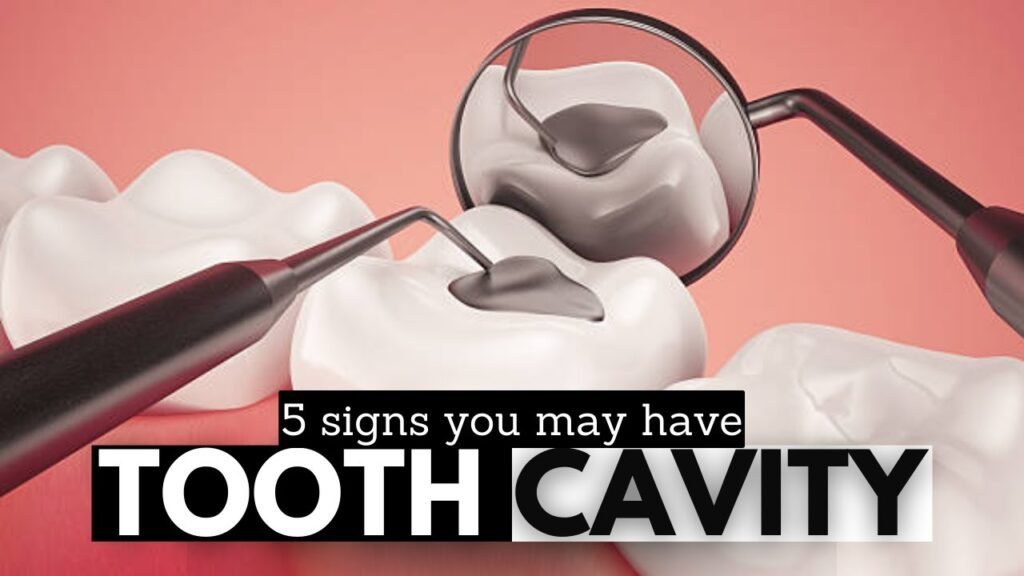The Impact of Untreated Cavities

Have you ever wondered what happens if you have a cavity? From tooth sensitivity to pain and potential infection, untreated cavities can lead to serious dental issues. In this article, we will explore the consequences of ignoring a cavity and the importance of seeking prompt treatment for optimal oral health.
Can a cavity disappear?
Yes, cavities can go away if caught early enough. By maintaining good oral hygiene habits and addressing demineralization in its early stages, it is possible to reverse cavities and prevent further decay. However, once cavities progress beyond a certain point, they become irreversible and will require professional dental treatment to fix. Regular dental check-ups and diligent oral care are key in preventing cavities from reaching this irreversible stage.
If I have a cavity, what should I do?
If you suspect you have a cavity, don't wait to seek dental care. Ignoring the problem can lead to more serious issues down the line, so it's important to address it promptly. Making an appointment with a dentist is the best course of action to prevent further complications and ensure your oral health.
When it comes to cavities, early intervention is key. By seeing a dentist as soon as possible, you can prevent the decay from progressing and avoid more extensive procedures in the future. Taking proactive steps to address cavities can save you from experiencing unnecessary pain and expenses, so don't hesitate to schedule an appointment with a dental professional for a thorough evaluation and treatment plan.
What are the consequences of leaving a cavity untreated?
If left untreated, a cavity can lead to serious consequences. As the cavity progresses, the bacteria can infect the tooth pulp and root, potentially causing the tooth to die. Without proper treatment, the tooth may become painful, sore, and even brittle or loose. In addition, you may notice discoloration around the affected tooth, such as brown, dark yellow, or black stains.
Ignoring a cavity for an extended period of time can result in irreversible damage. After a year of neglect, the tooth may die, leading to further complications and potentially requiring more extensive dental procedures. It is important to address cavities promptly to prevent further deterioration and preserve the health of your teeth.
Preventing the Silent Epidemic of Untreated Cavities
Did you know that untreated cavities are a silent epidemic affecting millions of people worldwide? Despite being preventable, cavities often go untreated, leading to more serious oral health problems. By practicing good oral hygiene, including regular brushing, flossing, and dental check-ups, you can prevent the silent epidemic of untreated cavities. Taking simple steps to maintain oral health not only saves you from pain and discomfort but also helps to reduce the burden on the healthcare system. Don't let cavities go untreated – take control of your oral health and prevent the silent epidemic.
Unlocking the Hidden Dangers of Neglected Tooth Decay
Neglecting tooth decay can have serious consequences for your oral health. From painful cavities to gum disease and even tooth loss, the hidden dangers of untreated decay can impact your overall well-being. By addressing decay early on through regular dental check-ups and proper oral hygiene, you can prevent these risks and maintain a healthy smile for years to come.
Don't wait until it's too late to address tooth decay. Take control of your oral health by scheduling regular dental appointments and practicing good oral hygiene habits. By unlocking the hidden dangers of neglected decay, you can avoid costly and painful dental problems in the future. Your smile is worth the effort – don't let decay stand in the way of your dental health.
In summary, neglecting a cavity can lead to serious consequences such as tooth infection, abscess, and even tooth loss. It is crucial to address cavities promptly by seeking professional dental treatment to prevent further damage and maintain optimal oral health. Remember, early intervention is key to preserving your smile and overall well-being.